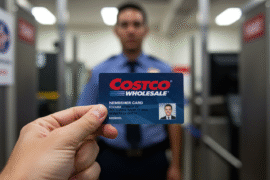This article may contain references to products or services from one or more of our advertisers or partners. We may receive compensation when you click on links to those products or services. Nonetheless, our opinions are our own.
The information presented in this article is accurate to the best of our knowledge at the time of publication. However, information is subject to change, and no guarantees are made about the continued accuracy or completeness of this content after its publication date.

Updated by Albert Fang
Many employees assume that if they’re injured in an accident at work, they only have the option of pursuing workers’ compensation.
But actually, in certain situations, they can also file personal injury claims.
Check out the following helpful information to find out if you can pursue a personal injury lawsuit if you’re injured at work.
What’s the difference between a workers’ compensation claim and a personal injury suit?
The main difference between workers’ compensation and a personal injury claim is that the latter has to do with fault while the former doesn’t.
So, to make a valid personal injury claim for a workplace accident, the employer or another liable party must have done something wrong to have caused the accident.
For example, an employer may not have fixed the lighting on a stairwell or put safety procedures in place for operating a specific piece of machinery.
There are other distinctions between a workers’ compensation claim and a personal injury lawsuit.
Dolman Law explains more about workers compensation vs. personal injury settlement, but here’s an overview of the key differences between the two.
Workers’ Compensation Claims
Workers’ compensation claims for injuries at work mean:
- Fault isn’t required.
- You have no right to sue.
- Only employees can make claims.
- You can’t gain compensation for the pain and suffering you experience as a result of your injury.
Personal Injury Claims
A personal injury claim means:
- Fault is required.
- You have the right to sue.
- Any injured party is eligible to make a claim.
- You can recover all damages, including pain and suffering.
Determining Fault
Let’s take a closer look at those differences.
As mentioned above, to claim workers’ compensation, you don’t have to prove someone was at fault for the accident that caused your injury in order to receive benefits.
So, even if it was your own negligence that caused your injury, if the accident happened while working, you can receive workers’ compensation.
On the other hand, to make a personal injury claim, someone, often the employer, needs to be liable or at fault for the accident.
But to gain compensation, you, with the help of a lawyer, will need to prove that the party was at fault.
For example, if you have a slip and fall accident, to claim compensation from a personal injury lawsuit, you may need to prove that your employer failed to properly maintain the property.
Voted "Best Overall Budgeting App" by Forbes and WSJ
Monarch Money helps you budget, track spending, set goals, and plan your financial future—all in one app.
Get 50% OFF your first year with code MONARCHVIP
Claiming for Pain and Suffering
We also mentioned earlier that you can’t receive compensation for pain and suffering via workers’ compensation. You can only pursue and potentially receive compensation for pain and suffering if you file a personal injury lawsuit.
With workers’ compensation, you can only receive weekly payments as well as benefits to cover medical bills, permanent impairments, and vocational rehabilitation.
But with a personal injury claim, you can potentially recover all of the damages, including all of the same damages for workers’ compensation with the addition of lost earnings, lost earning capacity, and pain and suffering.
The Right to Sue
When you make a worker’s compensation claim, you usually can’t also file a lawsuit against your employer.
However, there are certain times when you might be able to sue for damages.
They include:
- If you were injured by a toxic substance.
- If you were injured by a defective product.
- If you were injured by a third party.
- If you were injured due to your employer’s intentional conduct.
- If your employer doesn’t have workers’ compensation insurance.
If you’re injured at work, you should consult a lawyer to find out exactly what your specific legal situation is and whether you can pursue a personal injury suit.

Reviewed and edited by Albert Fang.
See a typo or want to suggest an edit/revision to the content? Use the contact us form to provide feedback.
At FangWallet, we value editorial integrity and open collaboration in curating quality content for readers to enjoy. Much appreciated for the assist.
Did you like our article and find it insightful? We encourage sharing the article link with family and friends to benefit as well - better yet, sharing on social media. Thank you for the support! 🍉
Article Title: Injured at Work? Can You Also Pursue a Personal Injury Suit?
https://fangwallet.com/2022/08/23/injured-at-work-can-you-also-pursue-a-personal-injury-suit/The FangWallet Promise
FangWallet is an editorially independent resource - founded on breaking down challenging financial concepts for anyone to understand since 2014. While we adhere to editorial integrity, note that this post may contain references to products from our partners.
The FangWallet promise is always to have your best interest in mind and be transparent and honest about the financial picture.
Become an Insider

Subscribe to get a free daily budget planner printable to help get your money on track!
Make passive money the right way. No spam.
Editorial Disclaimer: The editorial content on this page is not provided by any of the companies mentioned. The opinions expressed here are the author's alone.
The content of this website is for informational purposes only and does not represent investment advice, or an offer or solicitation to buy or sell any security, investment, or product. Investors are encouraged to do their own due diligence, and, if necessary, consult professional advising before making any investment decisions. Investing involves a high degree of risk, and financial losses may occur including the potential loss of principal.
Source Citation References:
+ Inspo












































